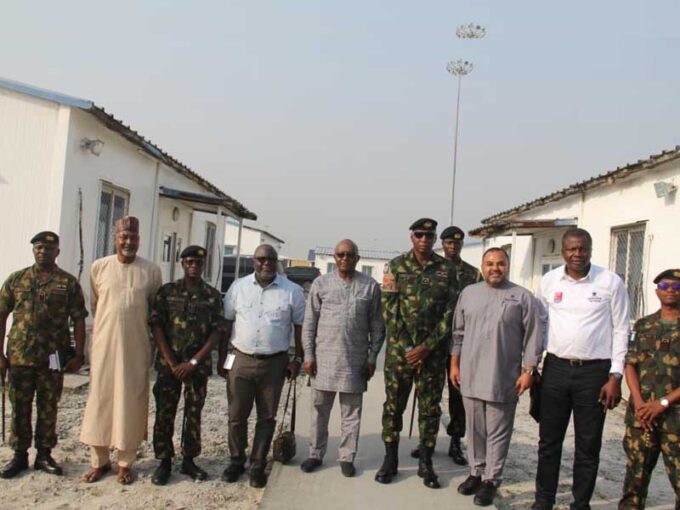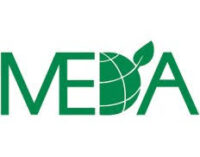By Chinelo Obogo
When former President Muhammadu Buhari assumed office in 2015, expectations were high as he postured as a seasoned reformer eager to change the narrative.
Coincidentally, the aviation sector was in dire need of reforms and many felt a doctor had come to treat the patient, literally speaking.
He then appointed Hadi Sirika, an industry professional, as Minister of State for Aviation who worked briefly under the then Minister of Transportation, Chibuike Amaechi.
Industry players supported his elevation to substantive minister, believing that with his expertise, he would understand the sector’s needs better than Amaechi, who was not an aviation professional.
However, despite being the longest-serving aviation minister in Nigeria’s history, industry experts said Sirika’s performance as Buhari’s minister fell short.
His tenure was a mix of modest achievements and very glaring failures. The Aviation Safety Round Table Initiative (ASRTI), an apolitical think-tank, said at the time that using Buhari’s own campaign promises as key performance indicators, the aviation sector under his watch scored poorly, with only 6% of ASRTI’s recommendations implemented, 42% remaining work in progress, and 52% not touched.
Then President of the ASRTI, Dr. Gabriel Olowo, in his opening address at the Business Breakfast Meeting held in Ikeja, said the future of the Nigerian aviation industry largely depends on how the country deals with the numerous challenges currently impeding its development. Among the pending issues, Olowo said the failure to establish some aviation agency boards as stated in the Civil Aviation Authority Act (CAA) violated Section 29:1 of the Act as contained in Section 11:1 of the 1999 Constitution during the eight years of the administration. Boards were later inaugurated a few days before the end of the administration.
The ART also released a statement shortly before Sirika’s tenure ended, saying that they could have rated his tenure a total failure but for the fact that he did appoint capable and qualified individuals to run the various departments and agencies under him.
“These astute professionals in our view discharged their duties creditably well in spite of the ministerial bottlenecks placed on their paths. For eight solid years, Sirika appropriated the required governance structure under his personal control by neglecting to appoint the statutory governing boards required to ease the functions of the agencies and parastatals under him. The ART is of the opinion that this, amongst other actions taken by Sirika, regressed rather than grew the organisations. His direct control resulted in transactional rather than functional operation of the agencies, thereby impeding their progress and his rating.
“Sirika, through his micromanagement activities, further demonstrated the need to scrap the Ministry of Aviation and place the various departments with proper governance structures back in the Ministry of Transport, while granting independence to the Nigerian Civil Aviation Authority under the appropriate internationally recognised structures for regulating the Nigerian aviation sector to achieve global best practices. The ART considers the last-minute activities of Sirika as capricious, despicable and unwarranted in the twilight of the Buhari administration,” the ART said.
Buhari’s most visible achievement in the sector was the completion of some airport terminals across the country, like that of the Murtala Muhammed International Airport (MMIA), Lagos in 2022. His administration also undertook some runway reconstruction and rehabilitation projects at the Nnamdi Azikiwe International Airport in Abuja and the Akanu Ibiam International Airport in Enugu. There was also the installation of airfield lighting at the domestic runway (18L) of the MMIA. However, the new Lagos terminal has inadequate apron space, causing aircraft parking congestion, while the Abuja terminal’s design obstructed the control tower, raising safety concerns.
In terms of safety, the sector recorded some improvement under Buhari’s watch. He approved the upgrading of the Accident Investigation Bureau (AIB) with a Flight Safety Laboratory (FSL) in Abuja. Nigeria achieved a 67.36% effective implementation level during the ICAO Universal Safety Oversight Audit Programme in 2016, surpassing the global average. The Nigerian Meteorological Agency (NIMET) secured ISO 9001:2015 certifications, becoming the first in Africa in aeronautical meteorological services. There was the installation of VHF radios in Lagos and Kano Area Control Centers and the development of Performance-Based Navigation (PBN) Procedures for 18 airports. Buhari also re-introduced zero import duties on aircraft, engines, and spare parts, approved a N22 billion bailout package under the Economic Sustainability Plan, and four international airports were designated as Special Economic Zones.
Unrealised aviation roadmap
While airport infrastructure had some improvements, the Buhari administration’s Aviation Roadmap, which was unveiled in October 2016 and promised to transform Nigeria into a regional aviation hub, fell flat. The roadmap included the establishment of a national carrier, which turned out to be the most controversial failure, a Maintenance, Repair and Overhaul (MRO) facility, an Aviation Leasing Company (ALC) which never materialised, an aerotropolis, the Africa Aerospace and Aviation University which was approved but not established, and airport concession.
The most controversial of the initiatives was the setting up of Nigeria Air, which Sirika launched with great fanfare just days before leaving office. The project immediately faced criticism and was described as a “scam” when it emerged that the aircraft displayed belonged to Ethiopian Airlines and was quickly returned to Addis Ababa. The agreement where Ethiopian Airlines would hold 49% shares and the Nigerian government just 5% sparked national outrage, with stakeholders questioning its transparency. The last-minute launch was seen as a desperate attempt to claim an achievement rather than a genuine effort to establish a national carrier.
The airport concession efforts also faced backlash after Sirika announced the concession of Nnamdi Azikiwe International Airport, Abuja and Mallam Aminu Kano International Airport, Kano in the administration’s final days. Industry stakeholders, including the ASRTI, condemned the rushed move, which they said lacked due diligence.
The ART at the time criticised Sirika’s actions, saying, “We remain skeptical of Sirika’s airport concession program and caution the new administration to take steps to immediately redress the issues. Nigerian airports are worth more than giveaways to friends and cronies. So also is the identified need for a national carrier, which ART is of the view should not be done at the expense of our collective benefit and joy. Nigeria Air with the word Nigeria is more than a mere word to patriotic Nigerians.”
Besides not fulfilling its mandate, Sirika’s administration faced heavy criticism for his leadership style. Allegations of nepotism, lopsided appointments, and disregard for the rule of law were rampant. Investigations by Daily Sun revealed violations of the Federal Character Act in recruitment within key agencies like the Nigerian Civil Aviation Authority (NCAA), the Nigeria Airspace Management Agency (NAMA), and the Federal Airport Authority of Nigeria (FAAN) during his tenure.
Daily Sun revealed how between 2015 and April 2022, 84% of the 280 persons who were newly recruited to the NCAA came from the north, with only 16% from the south. Similar situations took place in NAMA and FAAN. For the entire eight-year duration, Sirika adamantly failed to appoint boards for aviation agencies as required by law. However, boards were hurriedly inaugurated only two days before the end of the administration, which raised suspicions. Other last-minute decisions were the changing of the ministry’s name from Federal Ministry of Aviation to Federal Ministry of Aviation and Aerospace and annexing the National Aerospace Research Development Agency (NASRDA) from the Ministry of Science and Technology.
Blocked funds
The aviation sector grappled with one of the most severe foreign exchange shortages during the Buhari administration, which led to the trapping of over $700 million in funds belonging to foreign airlines, which was accumulated from the sale of flight tickets.
International airlines usually sell their flight tickets in naira, and when they do, they then need to repatriate their earnings in dollars to cover their operational costs. But when a country faces forex scarcity like Nigeria had during Buhari’s administration, what it means is that its central bank would not be able to provide the adequate forex to facilitate these repatriations.
For international airlines operating in Nigeria, this meant that most of their earnings were trapped in their Nigerian bank accounts, which they were unable to convert and transfer out of the country. This problem became persistent and escalated throughout Buhari’s second term, and the consequences were severe. The trapped funds forced airlines to look for alternative ways to source forex to meet their obligations. This included resorting to the parallel market, which further increased their operational costs. The cost of flight tickets flew through the roof because in order to remain operational, these international airlines had to block their lower inventories for Nigerians, and this eroded 40 percent of the travel market.
Despite persistent calls from IATA, the issue of blocked funds remained largely unresolved throughout Buhari’s tenure. While efforts were made to gradually release some funds, the volume of the backlog and the continued accumulation of new earnings meant the problem persisted.
Cape Town Convention
Another very serious issue that the Buhari administration failed to address was the removal of Nigeria from the blacklist by the global aircraft leasing and financing community, which would have eased the burden of domestic carriers who could not access aircraft on dry lease. Nigeria had a poor standing regarding the Cape Town Convention on International Interests in Mobile Equipment and its Aircraft Protocol. The Convention, which was adopted in 2001, aimed to facilitate the financing and leasing of aircraft. A country that ratifies and implements the Convention usually reduces the risks for financiers and lessors, thereby lowering the cost of leasing for its domestic airlines. Nigeria had ratified the Cape Town Convention, but there was no effective implementation, which meant that the judicial system did not provide security to international lessors.
The implication of this was severe. Lessors were very wary when dealing with Nigerian airlines due to the uncertainties surrounding the enforcement of their rights in case of default. Lessors were unwilling to do business with Nigerian airlines, or when they did, they offered a very limited selection of aircraft, and this made it more expensive for Nigerian airlines to lease aircraft or source financing.

















Leave a comment